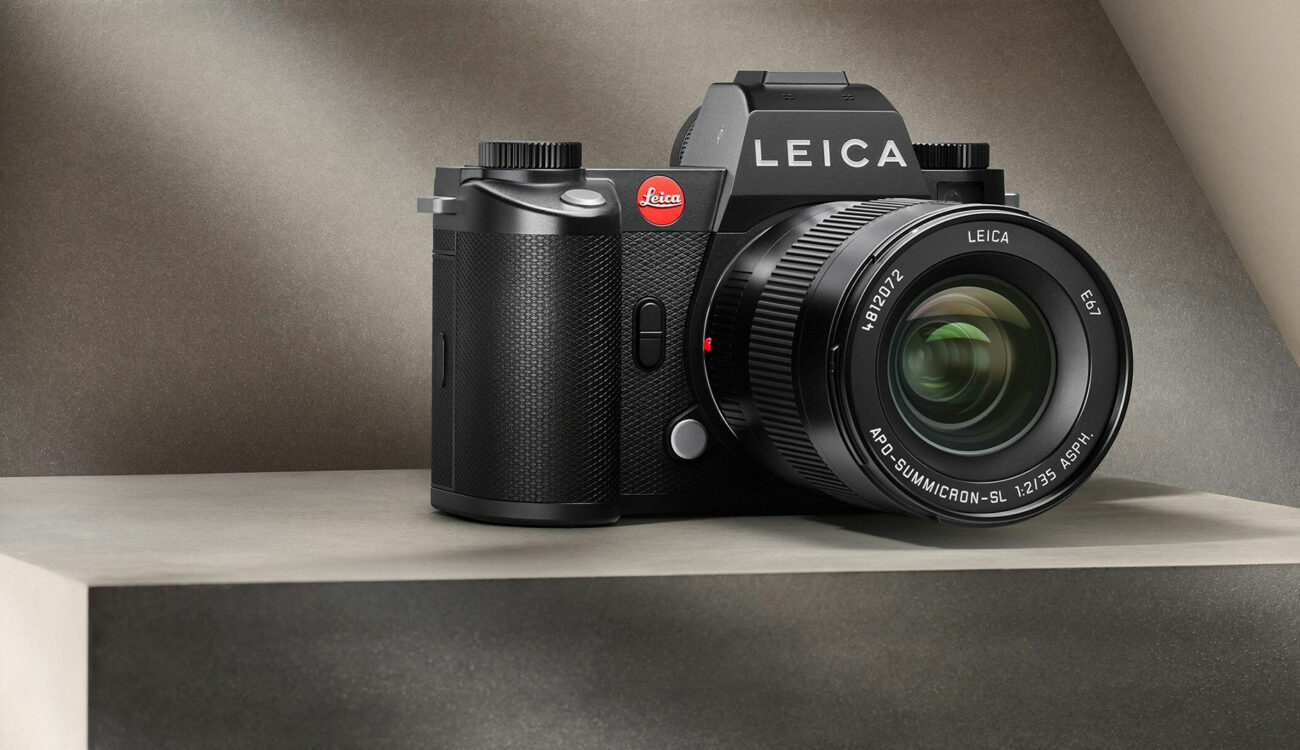
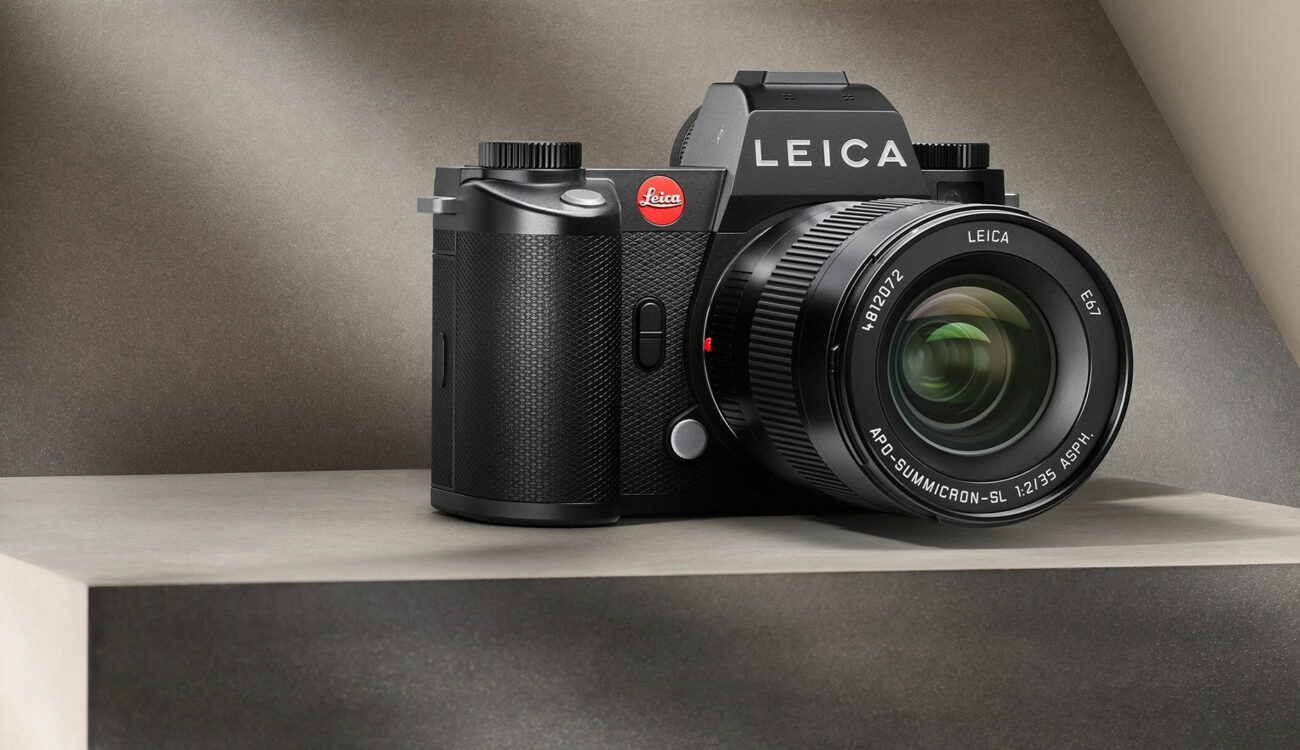
Leica has just released their latest SL-series mirrorless camera: the Leica SL3. While the exterior has many similarities with its predecessor, the SL2, the camera has been completely redesigned from the ground up with a new 60MP Full-Frame BSI CMOS image sensor, 5-axis IBIS, a new tilting touchscreen and OLED EVF, and the possibility to record internally in 8K at up to 30p, and in ProRes 422HQ in FullHD 1080p at up to 60p. So, let’s take a closer look at it!
The Leica SL system was first introduced in 2015. The German company then released the SL2 in 2019 and the more video-centric version, the SL2-S, in 2020 that we reviewed here (don’t miss the rare occasion to see Johnnie wash his hair, and naked in a bathtub if you have never watched that mini-documentary).
Nearly a decade after introducing the SL system, Leica has just announced their new iteration: the Leica SL3.
Leica SL3 – exterior design
We can consider the exterior design of the SL3 as adhering to the principle of “If it’s not broken, don’t fix it.” Indeed, there are no significant changes on the outside, and the camera still has a minimalist look.
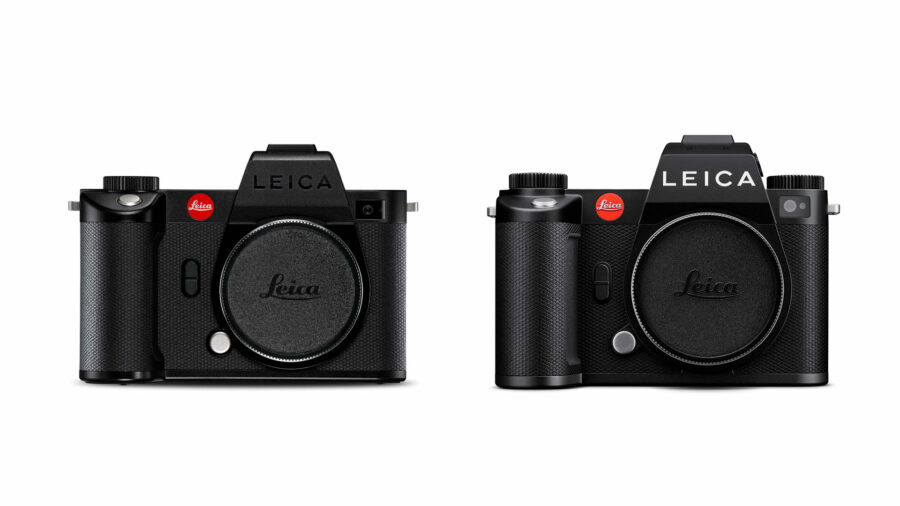
The camera measures 15.1 x 10.8 x 8.4cm/5.96 x 4.25 x 3.3″. It is made of aluminum and magnesium alloy and tips the scale at 769g/1.7 lbs. Also, it is IP54-rated so you can shoot in all weather conditions ranging from -10 to +40°C/14 to 104°F.
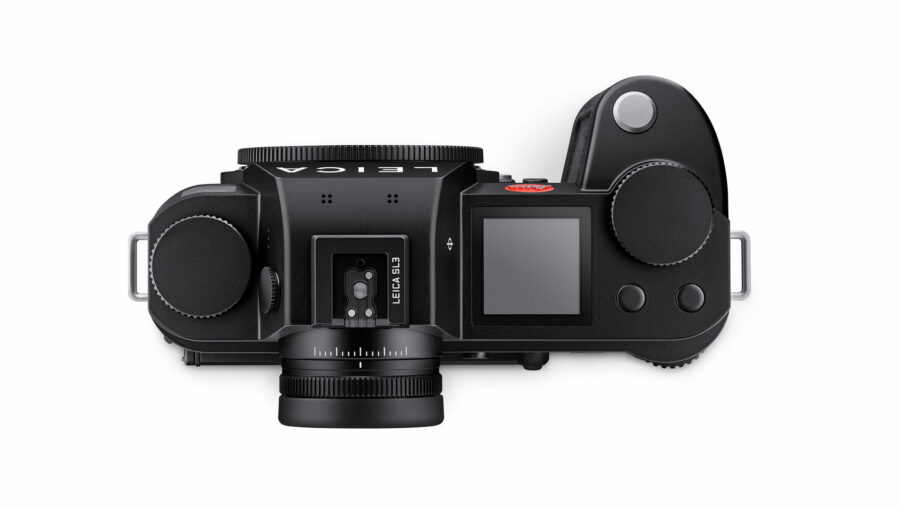
However, you can see that a new control dial is on the top left side of the camera. None of the top buttons or dials of the cameras have names/labels on them, as they are all user-customizable. I love that you can assign to every button and dial the function that best suits your shooting style.
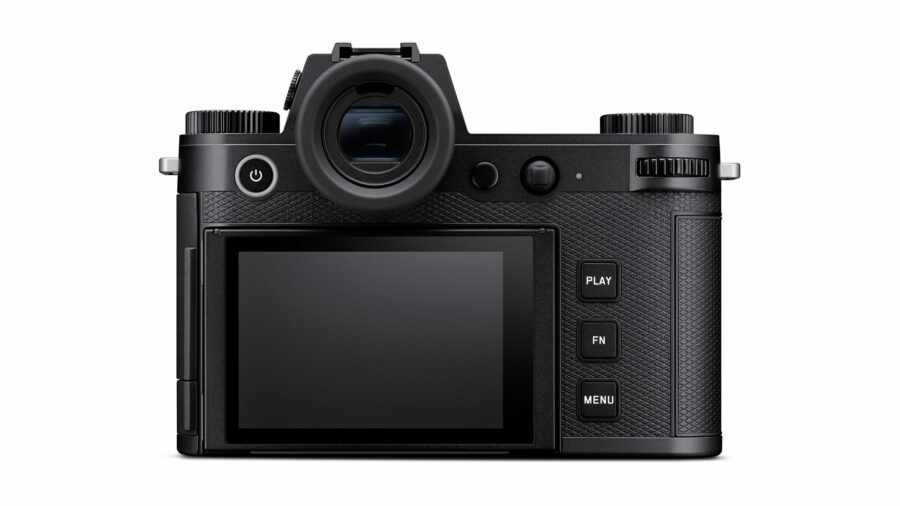
At the back of the camera, Leica moved the only three assigned buttons to the right part of the touchscreen: the play, function, and menu buttons. Also, the power switch has been replaced by a power button. Regarding the touchscreen, the SL3 now has a new 3.2″ 2.3m-dot LCD that can (finally) tilt! The EVF has also been updated by a 5.76m-dot 0.78x OLED version.
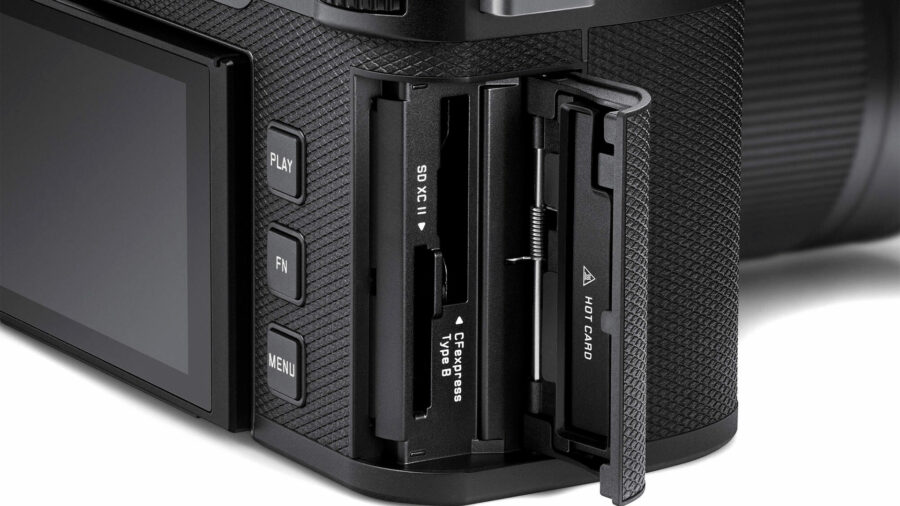
Recording media and connectivity
The Leica SL3 has two memory card slots. It can record photos and videos onto CFexpress type B and/or SD UHS-II memory cards.
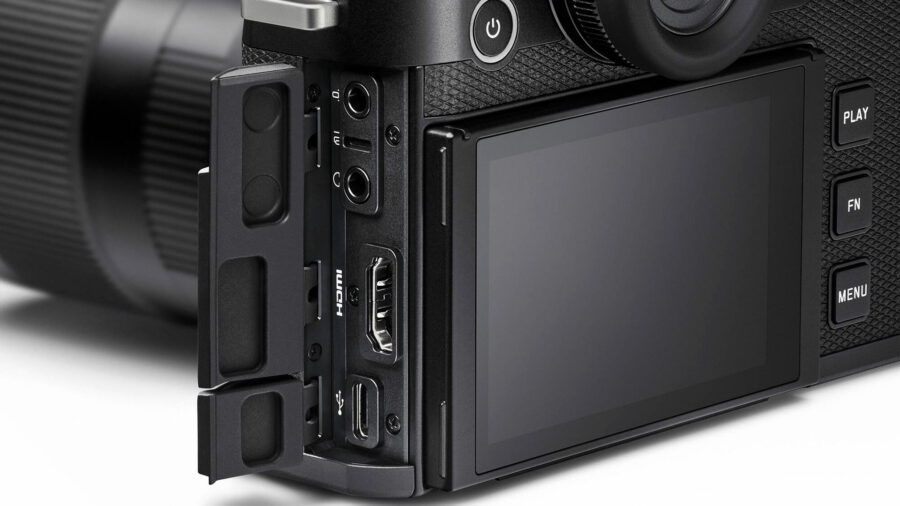
On the left side of the camera, you’ll find multiple input and output ports, including:
- There is one USB Type-C port for data transmission, tethering, and power supply. The Leica SL3 is also a certified Apple “Made for iPhone and iPad” accessory, so you can connect it directly via USB-C to your Apple device.
- One full-size HDMI 2.1 port. This port allows for external monitoring and recording (more on that later).
- One 3.5mm microphone input and one 3.5mm headphone output.
In terms of wireless connection, the SL3 has built-in Bluetooth and WiFi connectivity. You can connect the camera to the free Leica FOTOS app to download/edit your pictures, and also update the camera’s firmware wirelessly.
The camera uses a new BP-SCL6 battery, and an optional dual charger is also available. Leica also released the optional HG-SCL7 multifunction handgrip and a DC coupler designed for the SL3. The DC coupler enters the camera’s battery compartment and acts as a dummy battery.
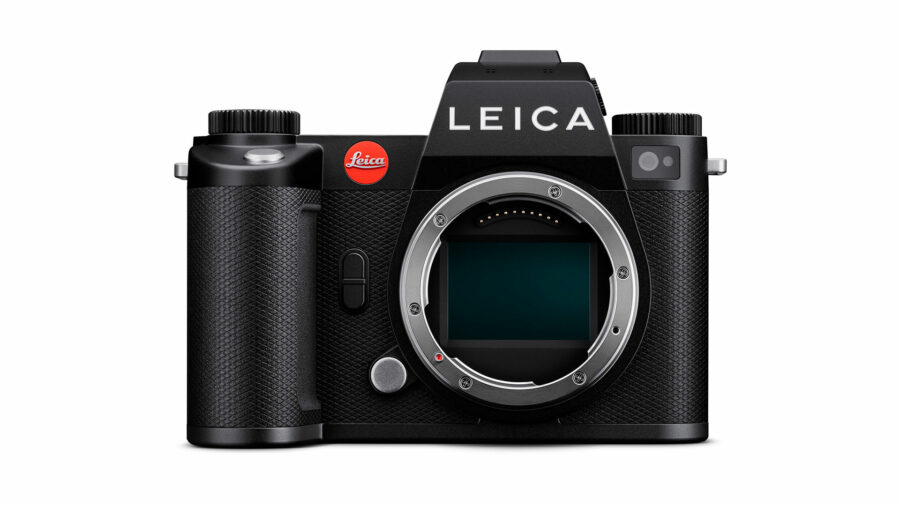
Leica SL3 – new sensor and stills mode
The SL3 still features a Leica L mount, and behind it is a brand new 60MP full-frame BSI CMOS image sensor. In stills mode, you can select between 60, 36, and 18MP resolution in DNG Raw or JPG. According to Leica, the SL3 has a dynamic range of up to 15 stops, which is quite impressive.
The camera’s Maestro IV image processor powers it, and it can go from ISO 50 to 100,000. In stills mode, you can shoot at up to 15 frames per second. But as filmmakers, let’s talk about what matters most to us: video recording capabilities.
Video recording features
The Leica SL3’s user interface has been completely revamped, with red icons/menus for the photo mode and yellow ones for the video mode. The UI rotates as you turn the camera vertically, which is handy in stills mode or if you’re creating vertical content for social media.
In terms of video recording, the SL3 can record internally in DCI 8K 8192 x 4320 in H.265, H.265 Long GOP, or MOV in 4:2:0 10-bit at up to 30p, with a maximum bitrate of 300Mb/s. In DCI 4K, you can go up to 60p with a maximum bitrate of 600Mb/s. If you want to record externally via the HDMI output, the camera can crank up the resolution to DCI 8K 8192 x 4320 in 4:2:2 10-bit and DCI 4K in 4:2:2 10-bit. Lastly, you can record in ProRes 422HQ internally, but you’ll have to sacrifice the resolution to FullHD 1080p, with a maximum framerate of 60p. The entire list of available recording formats/framerates/bitrates is extremely long and available on Leica’s website here.
In terms of picture profiles, you’ll have the choice between Rec.709, L-Log Rec. 2020, and HLG Rec. 2020.
The SL3’s autofocus system has been completely redesigned with a new hybrid AF system. This system combines phase detection, contrast, and object autofocus for faster and more consistent performances. Leica says, “Thanks to advanced algorithms, these technologies work in harmony to produce a highly precise system.”
The cherry on top for filmmakers is that the SL3 has a 5-axis sensor-shift image stabilization system, also known as IBIS, so you can capture stable footage even if your lenses are not stabilized.
Price and availability
The Leica SL3 is available now for $6,995.
For more information, please visit Leica’s website here.
What do you think about this new Leica SL camera? Have you already shot a video project with a Leica camera? Don’t hesitate to let us know in the comments below!






